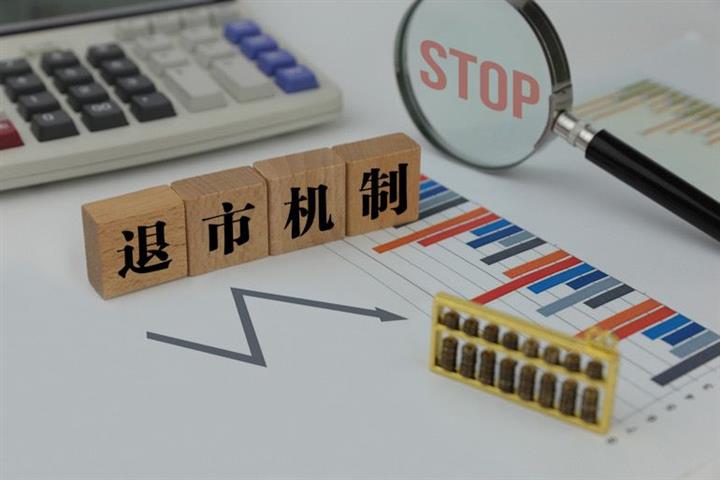 China to Seek Feedback on New Delisting Regime for Stock Market
China to Seek Feedback on New Delisting Regime for Stock Market(Yicai Global) Dec. 1 -- China’s stock market regulator is preparing to make it easier and faster to delist companies and is expected to issue a draft proposal soon to solicit feedback, Yicai Global learned from a person close to the watchdog.
The new regime would optimize standards and procedures, and provide public firms with multiple exit channels, the person said, adding that it draws on the experience of reforms piloted by the Star Market and ChiNext, two Nasdaq-style Chinese boards.
Simple and clear rules and procedures will help promote the survival of the fittest in the market and the standardization of the capital market, said Li Xunlei, chief economist of Zhongtai Securities.
Over the more than 30 years that China’s stock market has been open just 125 firms have exited out of a total of 4,087 businesses, according to public records.
The new system should be diverse and multi-channel to enhance investors’ risk awareness and allow them to vote with their feet, including delisting standards on the stock price or market value, Dong Dengxin, head of the Finance and Securities Institute at Wuhan University of Science & Technology, told Yicai Global.
The reform also needs to strengthen the supervision of information disclosure to thoroughly curb fraud, so the delisting system can be implemented effectively and efficiently, Dong said.
The current system only sets requirements on the profitability of listed companies. Though firms that suffer losses for three straight years are suspended, the possibility of a comeback still exists. Few have actually been ejected in the past 20 years due to many loopholes. Indeed, speculators often target poorly run businesses when they are on the verge of delisting.
‘No Fewer Than 30’
If the number of initial public offerings is about 300 to 500 a year, then the number of delisted companies -- including both active and forced delisting -- should be about 100, or at least no fewer than 30, according to Dong.
“It should be normal for 30 to 50 companies to delist each year under the new system,” he said.
“Among them, the number of companies delisting through mergers and acquisitions and privatization is expected to account for almost half of the total,” Dong said. “That of forced delisting will account for the remaining half.”
Firms that are removed based on the ‘CNY1 stock price rule’ could account for half of those forced out, he added.
The reform will have a profound impact on the Chinese stock market, Zhongtai’s Li told Yicai Global. One reason for the US market’s long-term positive performance is the elimination of public companies. The market indexes select the best component stocks, so that the indexes can keep rising, Li said.
The proposal would also change the rules of China’s stock market and help correct the market valuation system, the economist added.
“A good valuation system should give higher premiums to companies with strong certainty in the stock market, and discounts to those that have unpredictable main business, frequently undergo M&As, and have uncertain future performance,” Li said.
Editors: Tang Shihua, Peter Thomas